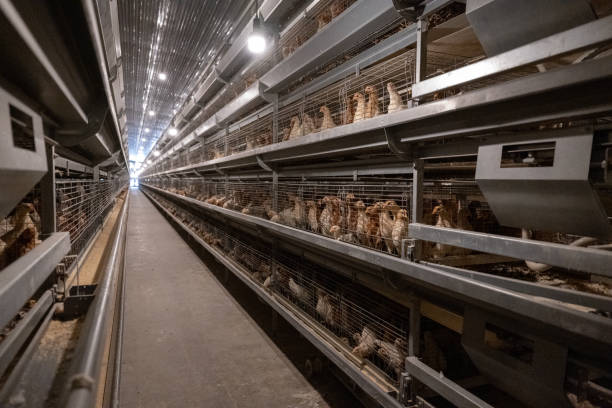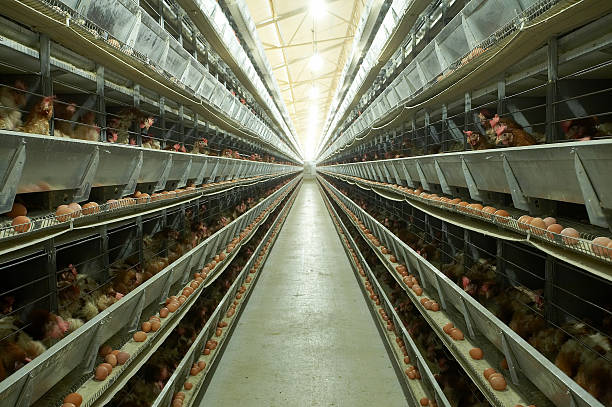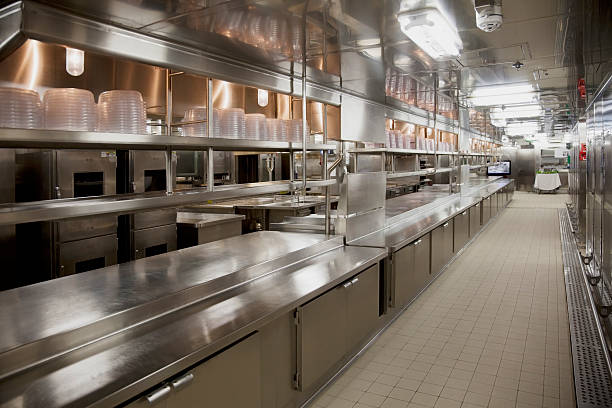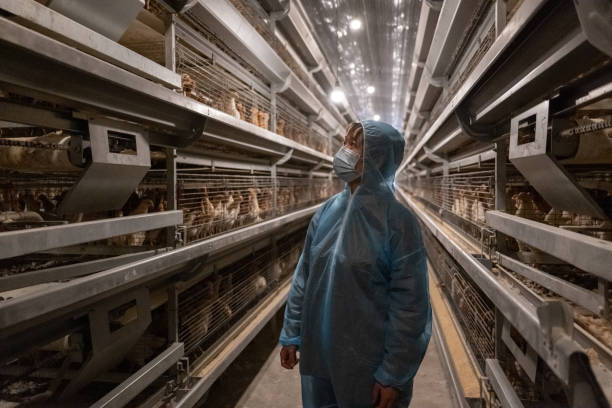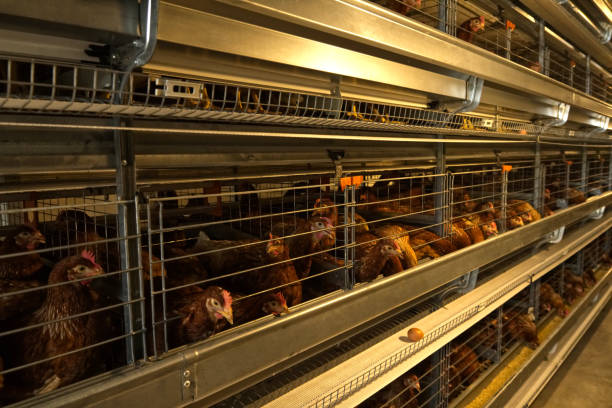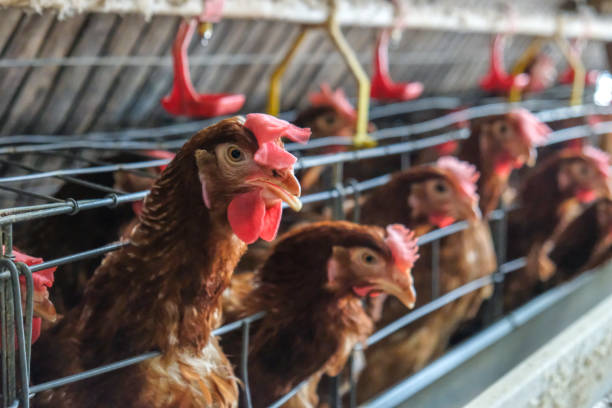Investing in Broiler Cages for a 500,000 Chicken Farm in Togo: A Comprehensive Guide
Investing in Broiler Cages for a 500,000 Chicken Farm in Togo: A Comprehensive Guide
Poultry farming in Togo is experiencing a significant boom, driven by increasing domestic demand for chicken meat and eggs. As more entrepreneurs and established farmers invest in this sector, the need for efficient and scalable farming solutions becomes paramount. For large-scale operations, such as a 500,000-chicken farm, broiler cages offer a compelling proposition, promising enhanced productivity, better management, and ultimately, higher profitability. However, such a significant investment requires careful consideration and planning. This comprehensive guide will provide you with the knowledge you need to make informed decisions regarding the implementation of broiler cages in your Togolese chicken farm.
Understanding the Togolese Poultry Market: Opportunities and Challenges
Before diving into the specifics of broiler cages, it’s essential to grasp the dynamics of the Togolese poultry market. Togo, like many other West African nations, relies heavily on poultry for protein consumption. The demand is consistently on the rise due to population growth, urbanization, and changing dietary habits. This situation presents a golden opportunity for poultry farmers who can meet the escalating demand with quality products.
However, there are also challenges to contend with. These include:
Feed Costs: The availability and cost of quality feed are crucial determinants of profitability. Farmers need to explore cost-effective feed sourcing strategies, including local production and alternative feed ingredients.
Disease Management: Poultry diseases can decimate flocks and result in significant financial losses. Implementing robust biosecurity measures and vaccination programs is critical.
Infrastructure Limitations: Electricity supply can be inconsistent in some areas of Togo. Farmers should consider back-up power solutions to ensure uninterrupted operations.
Market Access: Connecting with reliable buyers and establishing efficient distribution channels are essential for selling your products at competitive prices.
Competition: The poultry market in Togo is becoming increasingly competitive. To succeed, farmers must adopt modern farming practices and differentiate their products.
Why Choose Broiler Cages for a Large-Scale Operation?
Traditional free-range farming, while having some appeal, is simply not viable for managing 500,000 chickens. Broiler cages offer several significant advantages for large-scale operations:
Increased Stocking Density: Cages allow you to house a much larger number of chickens in a given area compared to floor systems. This maximizes space utilization and translates to higher production output.
Improved Feed Conversion Ratio (FCR): Broiler chickens in cages have limited movement, which means they expend less energy. This results in a better FCR, meaning they gain more weight for every unit of feed consumed. This directly reduces feed costs, which constitute a major expense in poultry farming.
Enhanced Hygiene: Cages are designed to separate chickens from their waste. This reduces the risk of disease outbreaks and improves the overall hygiene of the farm.
Easier Management: Cages simplify tasks such as feeding, watering, and waste removal. This reduces labor requirements and improves overall farm management efficiency.
Reduced Mortality Rates: By providing a controlled environment and minimizing contact with other birds and waste, cages can help to reduce mortality rates, leading to higher profitability.
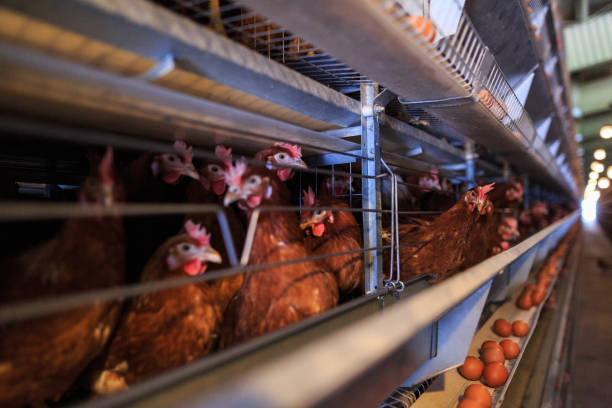
Uniform Growth: Chickens in cages tend to grow more uniformly compared to those on floor systems. This makes it easier to manage the flock and harvest the birds at the optimal time.
Better Monitoring: Cages make it easier to monitor individual birds for signs of illness or distress. This allows for early intervention and treatment, preventing potential losses.
Types of Broiler Cages Available
The market offers various types of broiler cages, each with its own features and benefits. Understanding the different options is crucial for making the right choice for your farm. Here are some common types:
A-Frame Cages: These are the most common type of broiler cages. They are relatively inexpensive and easy to install.
H-Frame Cages: H-frame cages are more robust and offer better ventilation compared to A-frame cages. They are also easier to clean.
Flat Deck Cages: Flat deck cages are designed for younger chicks and offer easy access for feeding and watering.
Automatic Cages: These cages are equipped with automated feeding, watering, and waste removal systems. They are more expensive but significantly reduce labor requirements.
When selecting broiler cages, consider factors such as:
Material: The cages should be made of durable and corrosion-resistant materials, such as galvanized steel.
Design: The design of the cages should allow for proper ventilation, easy access to feed and water, and efficient waste removal.
Size: The size of the cages should be appropriate for the breed and age of the chickens.
Durability: The cages should be able to withstand the rigors of daily use.
Ease of Cleaning: The cages should be easy to clean and disinfect to maintain hygiene.
Planning Your 500,000 Chicken Farm: Cage Capacity and Farm Layout
Planning is paramount when establishing a 500,000-chicken farm. You need to carefully calculate the cage capacity required, taking into account factors such as the stocking density per cage, the expected growth rate of the chickens, and the duration of the growing cycle.
A standard broiler cage typically holds around 8-12 chickens, depending on the breed and age. To accommodate 500,000 chickens, you would need a substantial number of cages. It’s wise to consult with poultry equipment suppliers, like Livi Machinery, to determine the optimal cage configuration for your farm. We can help you design a layout that maximizes space utilization and ensures efficient operation.
The farm layout should also consider the following:
Housing: The broiler houses should be well-ventilated, insulated, and protected from the elements.
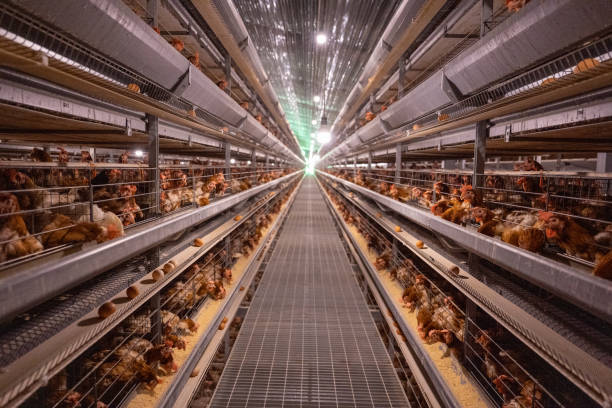
Feeding and Watering Systems: The feeding and watering systems should be reliable and easy to maintain.
Waste Management System: An efficient waste management system is crucial for maintaining hygiene and preventing environmental pollution.
Biosecurity Measures: Implement strict biosecurity measures to prevent the introduction and spread of diseases.
Access Roads: Ensure easy access for vehicles delivering feed and collecting chickens.
Office and Storage Space: Adequate office and storage space is essential for managing the farm efficiently.
Sourcing Broiler Cages from Livi Machinery: Quality and Reliability
When it comes to sourcing broiler cages for your 500,000-chicken farm in Togo, working with a reputable and experienced supplier is crucial. Livi Machinery is a leading manufacturer and exporter of poultry equipment, specializing in egg-laying chicken cages and broiler chicken cages. We have a proven track record of supplying high-quality products to farms across Africa, including Togo.
Here’s why Livi Machinery is the ideal partner for your poultry farm:
High-Quality Products: Our broiler cages are made from durable, galvanized steel that is resistant to corrosion and rust. They are designed to withstand the harsh conditions of poultry farming.
Customized Solutions: We offer a wide range of broiler cages to suit different farm sizes and requirements. We can also provide customized solutions to meet your specific needs.
Competitive Prices: We offer competitive prices without compromising on quality. We understand the importance of cost-effectiveness in poultry farming.
Excellent Customer Service: We provide excellent customer service and technical support to help you set up and maintain your broiler cages.
Experience and Expertise: We have years of experience in the poultry equipment industry and a deep understanding of the needs of poultry farmers in Africa; you can rely on our expertise to guide your decisions.
International Standards: Our cages meet international standards for animal welfare and hygiene.
Cost Analysis: Investment and ROI
Investing in broiler cages for a 500,000-chicken farm involves significant capital expenditure. It’s essential to conduct a thorough cost analysis to determine the feasibility and potential return on investment.
The cost of broiler cages will depend on factors such as the type of cages selected, the number of cages required, and the supplier. In addition to the cost of the cages, you also need to factor in the cost of installation, housing, feeding and watering systems, waste management systems, and labor.
To estimate your potential return on investment, consider the following:
Production Output: Estimate the number of kilograms of chicken meat you can produce per growing cycle.
Market Price: Determine the average market price for chicken meat in Togo.
Feed Costs: Estimate the cost of feed per kilogram of chicken produced.
Operational Costs: Factor in other operational costs such as labor, electricity, and veterinary expenses.
By carefully analyzing these factors, you can determine your potential profit margins and the payback period for your investment. Broiler cages, while initially a costly investment, contribute to lower labor costs, better hygiene, improve the FCR and reduce flock mortality, thus paying off in the long run.
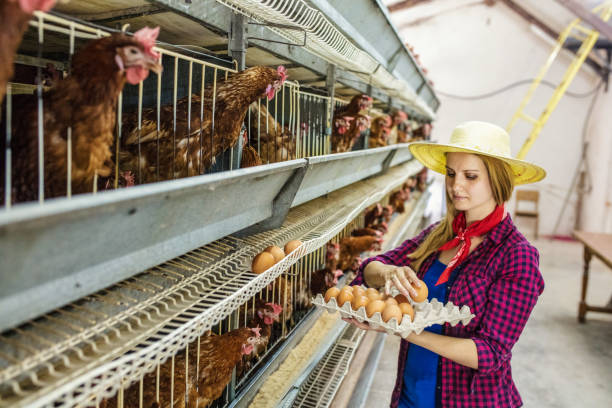
Navigating Regulatory Requirements in Togo
Before establishing your 500,000-chicken farm, it’s crucial to understand and comply with all relevant regulatory requirements in Togo. These may include:
Business Registration: Register your poultry farm as a legal business entity.
Environmental Permits: Obtain the necessary environmental permits to ensure compliance with environmental regulations.
Animal Health Certificates: Obtain animal health certificates to ensure that your chickens are disease-free.
Building Permits: Obtain building permits for the construction of broiler houses.
Conclusion: Embracing Modern Poultry Farming for Success in Togo
Investing in broiler cages for a 500,000-chicken farm in Togo is a strategic move that can significantly enhance your productivity, profitability, and market competitiveness. By carefully considering the factors outlined in this guide, sourcing high-quality equipment from Livi Machinery, and complying with all regulatory requirements, you can establish a thriving poultry business that contributes to the growing demand for chicken meat in Togo. Embrace modern farming practices, prioritize quality, and build strong market connections to achieve sustainable success in the Togolese poultry industry. Poultry farming represents an opportunity for growth and prosperity, and with the right approach, your 500,000-chicken farm can become a flagship operation in Togo. We at Livi Machinery are here to help you navigate this journey and provide you with the tools and support you need to succeed. Contact us today to discuss your needs and explore the possibilities of modern broiler farming.



